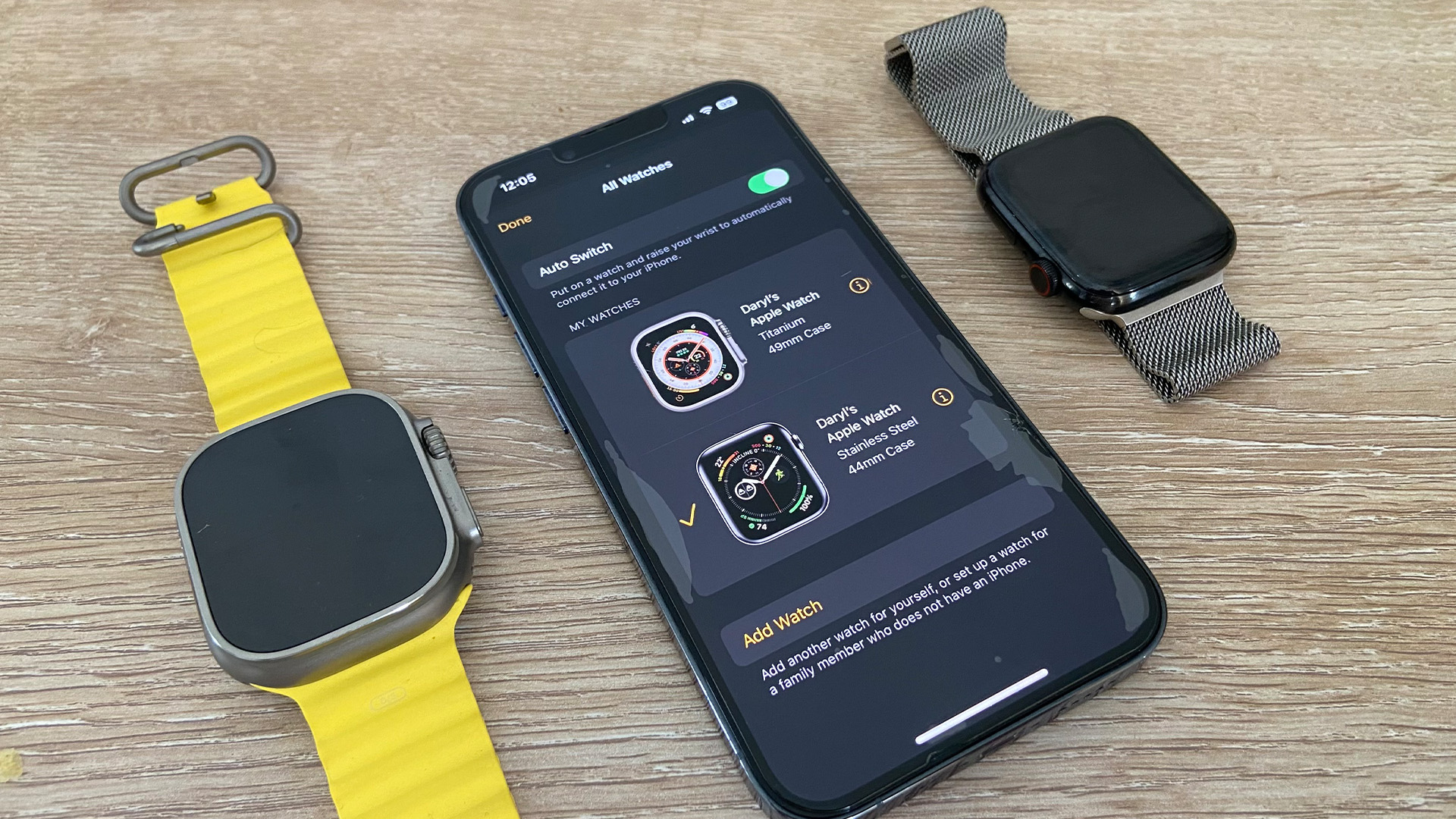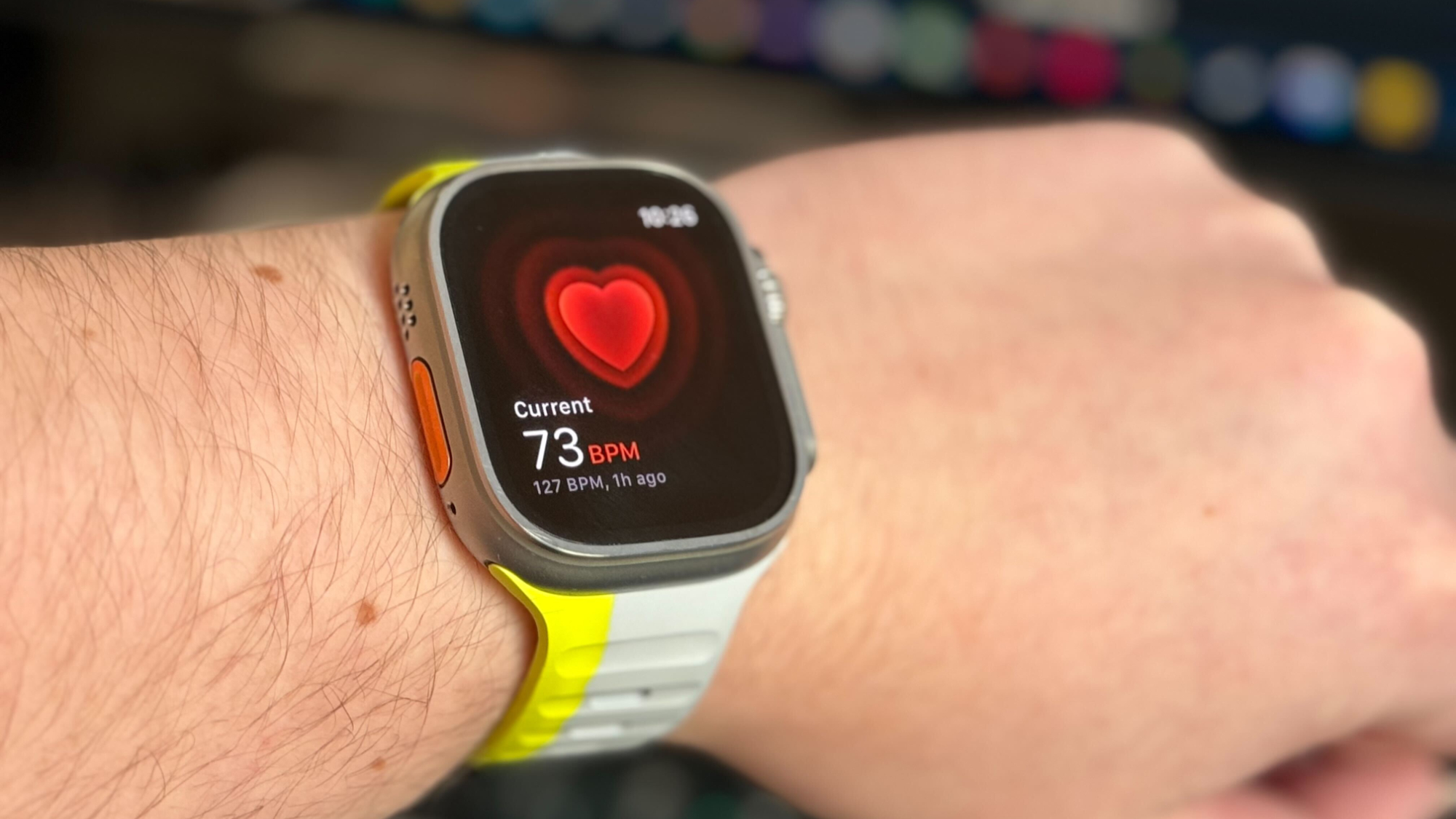
Apple products work best if you stick within the ecosystem. They play nice together. Things just work. It’s one of the reasons iPhone users buy one in the first place, never mind the rest of the gear they add on after. So much so that Tim Cook’s jokey response to a reporter’s complaint about the best iPhones not having RCS support (which is coming later this year) was, “Buy your mom an iPhone.” Slightly tone-deaf? Perhaps. But everybody, including Tim Cook, knows things just work in the Apple ecosystem.
But the US Department of Justice doesn’t like tech that just works, apparently. The DoJ filed a landmark lawsuit against Apple today, alleging the company has a smartphone monopoly. In the suit, the government claimed that one of the world's most successful and valuable companies has a stranglehold on phones, and stated bluntly that Apple uses it to extract more money from consumers. "Apple has gone from revolutionizing the smartphone market to stalling its advancement," said Deputy Attorney General Lisa Monaco. You can read the full lawsuit here.
It's a bold claim, make no mistake. And one that absolutely does not have merit. If we’re being honest, this entire lawsuit stinks. Not because of Apple’s alleged anti-competitive practices, but because the DoJ is coming after a company for being successful.
Success is anti-competitive, apparently
The DoJ seems to have a problem with Apple keeping its own toys – messaging, smartwatches, and digital wallets – away from the other kids. Why is this so bad, you ask? Because it makes ditching team iPhone a less appealing prospect. It’s not any one of these causes in particular that’s so bad, but rather the combination that’s allegedly anti-competitive.
According to the DoJ, casting Android users in green bubbles isn’t just inconvenient. It's a Machiavellian plot to keep iPhone users in the fold, especially the teenagers, who can’t live without one. Then there's the Apple Watch. The DoJ argues this exclusivity is less about innovation and more about keeping users locked into the Apple ecosystem. And don't forget about digital wallets. The DOJ claims Apple's NFC blockade is less about security and more about ensuring Apple Pay remains the top dog.
"These choices define us," says Apple. And that’s true. It’s not exaggerated. It’s not an angry response to a lawsuit against a company that obviously won’t like the fact it’s being sued. It’s the truth. Apple’s ecosystem is a core part of the company. It’s the reason Apple devices are so popular. How can something so harmful to consumers become the best selling smartphone? Could it perhaps be that -- brace for a shocker, here -- Apple’s ecosystem isn’t an evil anti-competitive plot? Could it be that it gives Apple users the best experience? And could Apple have figured out how to do that while still making a profit? That’s exactly the case.
The DoJ’s top allegation against Apple is that it holds a smartphone monopoly. Apple’s share of the US smartphone market is just over 60% in the US, per GlobalStats. That’s not a monopoly. To try and make this case, the DoJ is throwing in Samsung (Apple’s polar opposite) and using revenue to make the case for a monopoly. This very argument proves Apple does not have a monopoly, of course: The existing of another company defies the description!
In case that doesn’t fool anyone, the DoJ wants to create some made-up sub-market of “Performance Smartphones”, where Apple conveniently has a 70% market share. We can all bend statistics to represent the point we want – making up a sub-market isn’t proof of an monopolistic company. And if all that fails? They want to cry that Apple attempted to create a monopoly, which is also illegal.
One of the biggest arguments in this case is that Apple makes it hard for developers to make apps that work on Android as well. It cites super-apps like WeChat and cloud streaming game as examples of this. Such challenges make it difficult for users to switch phone platforms, apparently. What the DoJ might not realize is that super-apps like WeChat are cross-platform – on the App Store and the Play Store. How easy or difficult it is for developers to make that happen (hint: it’s pretty hard) isn’t the issue here – consumers are. Oh, and cloud gaming? Unless you’re in the EU, that’s only possible on Android devices. So much for locking you in to the iPhone, eh?
Then we move to Apple’s own products and services. The Apple Watch is exclusive to the iPhone, we all know that. But by not allowing third-party watches to work with iOS, the DoJ thinks Apple is being anti-competitive. What doesn’t seem clear to the DoJ is that an Apple Watch with Android support wasn’t doable because of technical limitations, per Apple’s own defense. As for Android watches on iOS, it seems the DoJ doesn’t quite have a grasp of the technical concepts here. Apple uses custom chips in its hardware, designed to work with one another. Third-party devices don’t have these, so are inherently not going to work as well.
As for Apple Pay, the DoJ claims that not allowing third-party payment apps makes it harder to switch platforms. But in reality, it’s the opposite. Apple Pay is a win for iPhones – it’s much more private than using regular cards, as it hides your card number (which can be used to collect data on you). It’s actually a reason to use the iPhone, not switch away from it.

Everything boils down to the argument that Apple’s products, services, and software work well together, thus making it harder to switch to competitors like Android. A competitive operating system that has almost 70% market share worldwide (per Statista), mind – which would actually be considered a monopoly. But intent seems the issue here. These features on iPhones objectively make Apple’s products and software better.
I’ll say it again: the Apple Watch, Apple Pay, and other ecosystem elements are reasons people want to use Apple products. Apple is making its own products and services better for its own customers. So it can sell more. You know, Econ 101. But apparently Apple has done too good of a job of this. Apple’s been too successful. The very features that make people want to use the iPhone are “unfair” to iPhone users because it means they can’t switch as easily. Talk about a Catch-22!
The fact of the matter is, most of these iPhone users don’t want to switch. A 2023 survey carried out by Consumer Intelligence Research Partners revealed 94% of iPhone buyers stick to Apple phones, and 91% of Android buyers stick to Android. And how many did defect? Only 4% of Android buyers came from an iPhone. People want to stick to what they’ve got, whether it’s an Android or iPhone. But, if you do want to switch, you can. You’re totally free to buy whichever phone you want – nothing is stopping you.
iPhone users like Apple’s ecosystem ... you know, because it’s good. But the DoJ wants to pretend the very ecosystem that attracts users is bad for users. Apple’s success, is apparently too successful for the DoJ.







